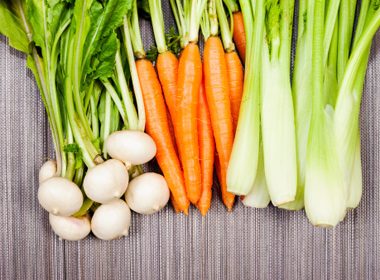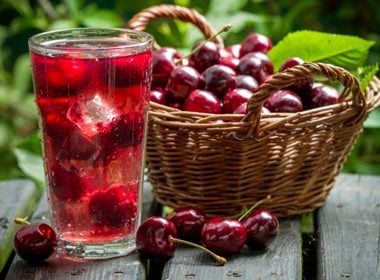
Zoltan Rona, MD
Gout results from an excess buildup of uric acid-waste our bodies produce when they break down a substance called purine found in our cells and food. Excessive uric acid sometimes forms sodium urate crystals that create pain and swelling in the joints. Causes include certain chronic diseases-such as cancer, psoriasis and hemolytic anemia-heredity, specific enzyme defects, excess vitamin A or B3 and kidney diseases. Diuretics and high consumption of red meat, alcohol and fructose will raise uric acid levels.
The condition is more common in men than women. It affects 200,000-plus Canadian men over age 30 every year and can lead to permanent joint damage if left untreated. Reaching and maintaining a healthy weight is crucial to gout prevention. Consuming plenty of fruits and vegetables, especially celery, kale and carrots, will help. Cherries and strawberries eaten in large amounts neutralize uric acid. The anti-gout drug allopurinol is often prescribed; it inhibits the enzyme xanthine oxidase, responsible for producing uric acid. See your health-care practitioner for advice and supervision.
Dr. Zoltan Rona (@drzoltanrona) practises complementary medicine in Toronto, edits The Encyclopedia of Natural Healing and is the author of the bestseller Return to the Joy of Health.

Amanda Vogel, Fitness Instructor
Joint pain is a symptom of gout, and if your husband is experiencing this in his feet, he might not feel capable of or comfortable with exercising. When it does feel manageable, he could try swimming and other moderate, low-impact activities like walking or cycling. Don’t ignore exercise-it can improve other medical conditions that people with gout sometimes face, such as high blood pressure and high cholesterol. Since being overweight or obese is a risk factor for gout, staying active is also a good way to manage weight without severely restricting calories from meals, which can also trigger a flare-up. Remember that drinking water when
exercising is important, because dehydration can also contribute to a gout attack as your body tries to manage levels of uric acid. More encouragement to exercise: a 2008 study in The American Journal of Clinical Nutrition showed that the risk of gout was substantially lower in male runners who were more physically active, maintained a recommended body weight and limited meat and alcohol in their diets.
Toronto-based certified nutritionist Julie Daniluk (@JulieDaniluk) co-hosts the reality cooking show Healthy Gourmet on the Oprah Winfrey Network and is the author of Meals That Heal Inflammation.

Julie Daniluk, Nutritionist
It may be enticing, but alcohol-especially beer-is high in purines, so reduce your intake. Cutting down on foods also high in the substance-such as anchovies, mackerel, herring, sardines, scallops, mussels, duck and organ meats-might make you feel better. Give your body a chance to heal by cutting back on sugar, refined processed foods, white-flour products and fried oils in your diet.
Beyond too much purine, the other major reason for uric acid accumulation in the joints is poor kidney function. In order to prevent or eliminate gout flare-ups, the kidneys must function well. Help the kidneys flush uric acid by drinking 10 cups of water a day. To reduce pain and inflammation, consider increasing your consumption of sustainable and distilled fish oil, flax, chia and hemp seed. Cherries contain anthocyanins, antioxidants that battle inflammation. In one study, drinking two tablespoons of cherry-juice concentrate a day reduced gout attacks.
Amanda Vogel (@amandavogel), MA human kinetics, is a Vancouver-based certified fitness instruct-or and author of numerous books, including Baby Boot Camp: The New Mom’s 9-Minute Fitness Solution.